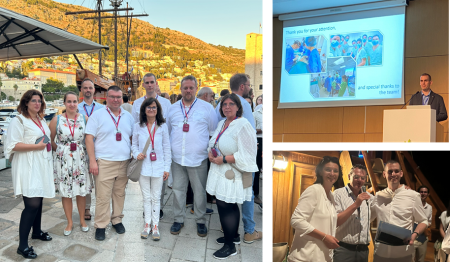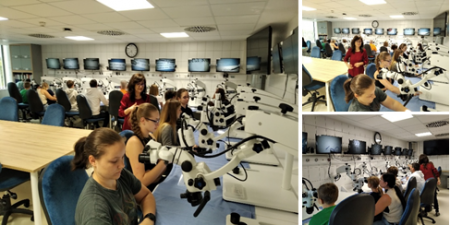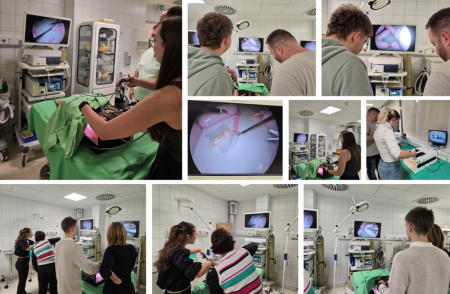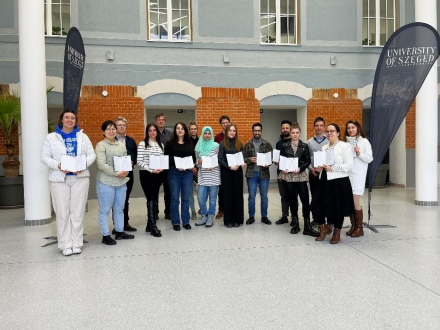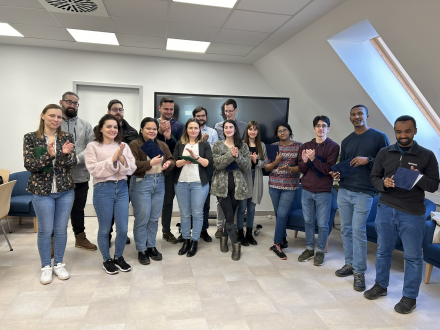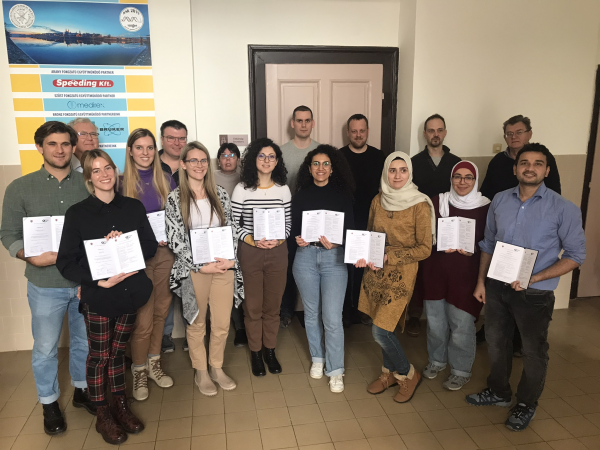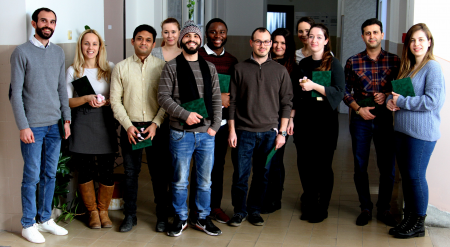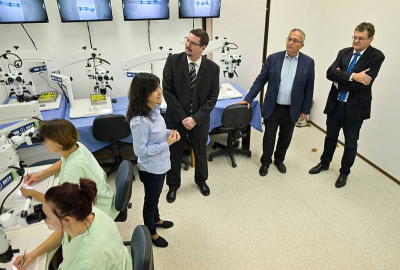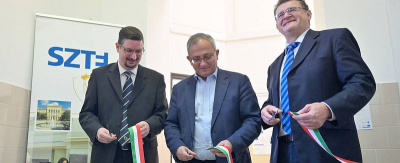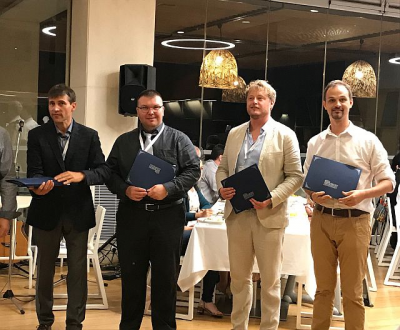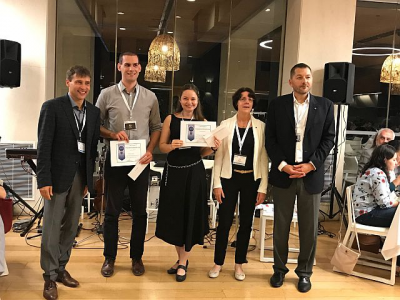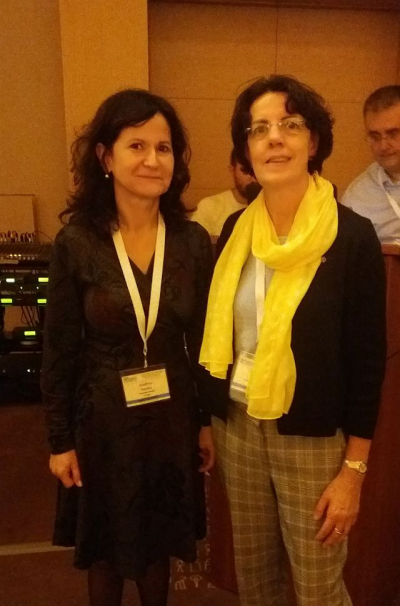News
Our institute's successes at the 21st Anniversary Congress of the European Shock Society
Researchers’ Night at Our Institute for the 5th Time
International FELASA animal experimentation course at the University of Szeged
International FELASA animal experimentation course at the University of Szeged
Our institute has been relocated!
University of Szeged hosted the recently internationally accredited FELASA "Animal Experimentation Theory and Practice A and B Level" (40 and 80 hours) course in English for the sixth time. The training was organized by the Institute of Surgical Research between 23 January and 3 February 2023. The majority of the theoretical training was online, while the practical training was face to face. The instructors included members from the Institute of Surgical Research, Department of Medical Physics and Informatics, Department of Neurology, Department of Physiology, Anatomy and Neuroscience of Faculty of Science and Informatics and the Radiobiology Research Group at ELI-ALPS. The participants were from Austria, the Republic of South Africa, India and Jordan, along with Syrian, Jordanian and Hungarian PhD students from the University of Szeged. After successful theoretical and practical examinations, certificates were handed over to 6 students at level A and 3 students at level B. The FELASA qualification provides participants with a recognized license to carry out experiments and design projects involving the use of laboratory animals in all countries of the world.
Messages of the New Coronavirus Operative Committee of USZ
To prevent the spread of the new coronavirus infection and with regard to the education breaks ordered by the Rector (No. IKT/5-790/2/2020. and No. IKT/5-790/4/2020), the University of Szeged issued the following orders, effective from March 12, 2020.
Students are not allowed to visit the buildings of the University of Szeged. Accordingly, all forms of communications and administration shall be conducted by electronic platforms, such as Neptun, Coospace, Modulo. Please note that the University of Szeged, along with the other Hungarian higher education institutions, will switch to distance education until withdrawal.
Read more:
https://u-szeged.hu/news-and-events/2020/visiting-university
International FELASA (Federation of European Laboratory Animal Science Associations) course at our Institute
Between January 13-24, 2020 the Institute of Surgical Research has organized the annual “Animal Experiments, Theory and Practice” course at the University of Szeged.
Participants for the internationally-accredited FELASA C level course arrived from Italy and Croatia, together with PhD students from Hungary, India, Iran, Jordan, Kuwaiti and Nigeria, from the Universities of Szeged and Pécs. The program was jointly run by lecturers and tutors from the Institutes of Biochemistry, Medical Informatics, Public Health, Surgical Research, the Department of Neurology and the Radiobiology Research Group at ELI-ALPS.
After the end of the two-weeks training and successful theoretical and practical exams, certificates were handed over to 12 researchers, who gained right to design and conduct experimental projects based on the use of laboratory animals in all countries of the world.
Opening of the Microsurgical Training Center
The project was financed by the EFOP-4.2.1-16-2017-00014 project, the aims were to develop the technical and infrastructural background of the microsurgical teaching to world-class standards, and to offer a site for basic and advanced activities under one roof.
Our vision is to provide a center of excellence for microsurgical training for Szeged and Europe, and to connect the best available teaching methods with the clinical practices. We are proud to take part is this challenging and fascinating task.
Recognitions and awards during the XVIIIth Congress of the European Shock Society
At the 9th Congress of the International Shock Societies - the 18th Congress of the European Shock Society (ESS) - the staff of the Institute of Surgical Research presented their research results in 3 oral and 6 poster presentations. Oral Presentations of Dr. Szabolcs Tallósy and Dr. László Juhász received the ESS Travel Award. The poster presented by Attila Rutai, our PhD student, was rewarded both with the ESS Presidential Award and with the Poster Award. Dr. Andrea Szabó associate professor, was elected by the General Assembly of the European Shock Society as Secretary General of the Society for a period of five years.
XXVIIth Congress of the Experimental Surgery Section of Hungarian Surgical Society
Dear colleagues!
Hereby we would like to invite you and your dear colleagues to honor us on the occasion of the XXVII Congress of the Experimental Surgery Section of the Hungarian Surgical Society, June 12-14, 2019.
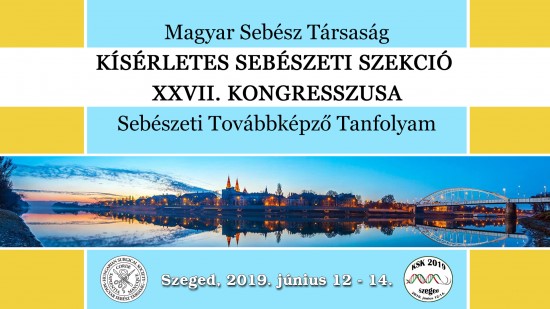
Next year’s Congress will be extraordinary in the manner that it will not only include the traditional translational experimental and educational areas but will also display the recently increasingly developing field of simulation training for healthcare workers. Institute of Surgical Research organizing the Congress is taking on a big task with arranging such a wide spectrum of the healthcare simulation training including several manual professions such as traumatology, gynecology, surgery, anesthesiology, and cardiology. Translational research topics about surgical innovations, high-tech trauma surgery and traumatology are highlighted areas. As a unique opportunity within the Congress, we provide the opportunity to the participants to learn about the latest traumatic, anesthetic, and neuro-interventional procedures. Both young clinicians and highly experienced professional mentors are expected to attend the workshops and roundtable discussions.
Institute of Surgical Research at University of Szeged, as an organizer of the Congress, will trying to make the event unforgettable in the manners of both scientific and social programs. First warm days of June with mayfly dance on river Tisza and the Tiszapart-Várkert hosting the programs making Szeged an ideal place for the next year Congress.
We highly recommend to mark 12-14th of June 2019 in your calendar with bold letters, as a must-see program!
Website of the Congress: http://www.congress-service.hu/rendezveny/kiseb2019
The organizing committee or the Congress Organizing Office (Congress & Hobby Service Kft.; 6725 Szeged, Szent Ferenc utca 8.; Gábor Mészáros managing director and colleagues) will be at your disposal in case of emerging questions. On behalf of the Organizing Committee of the Congress, with regards,
|
Dr. Petra Hartmann President of Congress |
Dr. Andrea Szabó Secretary of Congress |
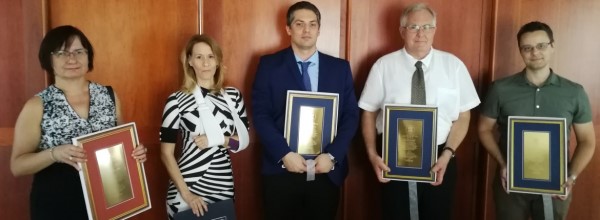
Excellent Scientific Circle Tutor of Faculty of Medicine title was awarded to:
Dr. Judit Füvesi, Department of Neurology
Dr. Péter Hegyi, MTA-SZTE MTA-SZTE Momentum Translational Gastroenterology Research Group
Dr. József Kaszaki, Institute of Surgical Research
Dr. Erika Kis, Department of Dermatology and Allergology
Dr. György Lázár, Department of Surgery
Dr. Ákos Menyhárt, Department of Medical Physics and Informatics
Dr. Norbert Nagy, Department of Pharmacology and Pharmacotherapy
Dr. Balázs Németh, First Department of Internal Medicine
Dr. János Szabad, Department of Medical Biology
Dr. Júlia Szakács, Department of Pathophysiology
Dean's praise was given to Orsolya Simon.
Email: office.expsur@med.u-szeged.hu
Head of Department: Andrea Szabó MD PhD



